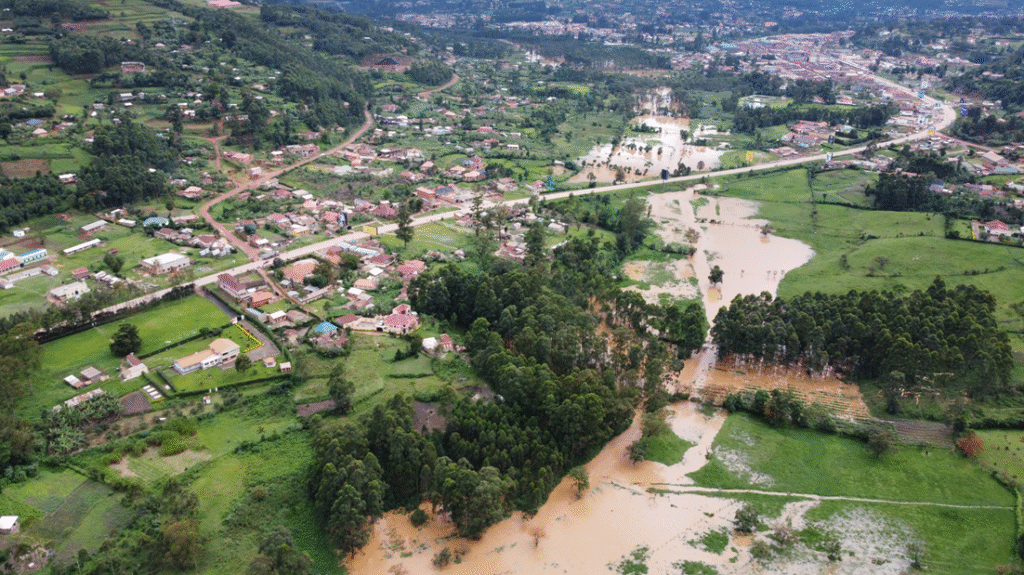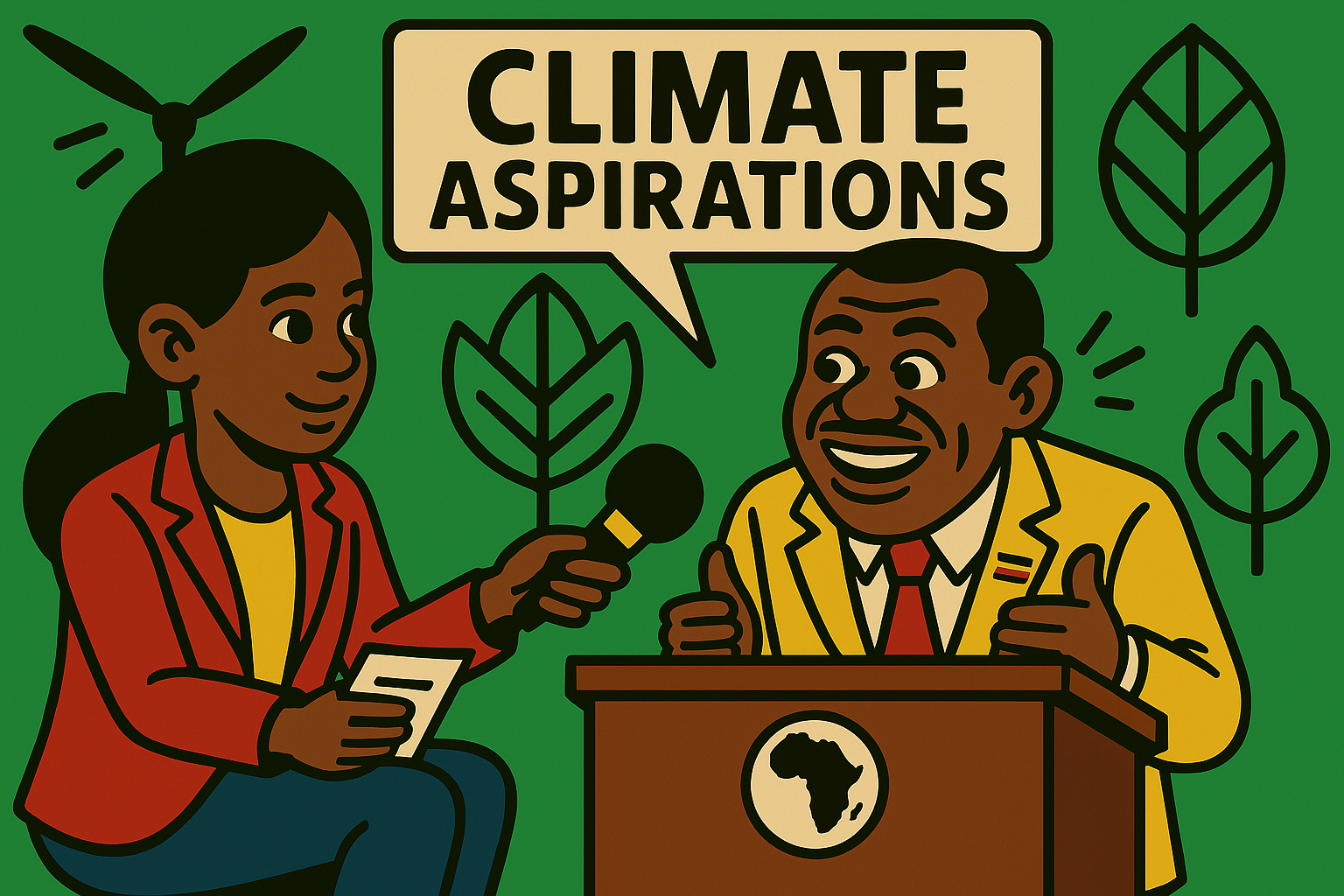In January 2026, Ugandans will head to the polls for the seventh time to exercise their constitutional right to choose leaders through a general election. As the country prepares for this pivotal event, the earth is also getting warmer. Since January, Uganda has been grappling with an unprecedented heat wave, with temperatures soaring to a record 40°C an anomaly for the region.
According to a World Bank report, scientists warn that by 2050, up to 12 million Ugandans about 11% of the population could be displaced by climate-related disasters. The Speaker of Parliament Honourable Anita Among recently urged lawmakers to take the lead in climate action, emphasizing its urgency.https://www.monitor.co.ug/uganda/news/national/uganda-scorches-as-speaker-among-warns-of-climate-crisis-4943844
Climate on the Ballot: Voter Perspectives
We asked voters if they would be concerned if candidates’ manifestos failed to address climate change and environmental protection.
Mrs. Kabahiirwa Benedetta, a 78-year-old voter from Fort Portal, believes climate change should be a priority for everyone.
“Maybe the youth don’t understand the extent of change the earth is experiencing, but for us who lived in the 80s, we can see that nothing is normal. It should be a concern for every voter,’’ she says.
“It is never a concern for young people to look at manifestos or even read through them to see whether they are considering climate change or environmental protection. But I think these are things we miss out on,’’ he says.
Nasifu Abdallah, a youth voter from Nakawa, admits he has not paid much attention to manifestos.
Christopher Liberty, a registered voter from Kabale, expressed his frustration.
“For heaven’s sake, it is ravaging us. I will only vote for candidates who support taking action on the issue,’’ he says.
Climate Change Simplified

A section of Kabale Town showing the extent of flooding. Photo by Ariyo Benjamin.
Now more than ever climate change is one of the biggest challenges of our times, primarily caused by burning fossil fuels, which release carbon dioxide and other greenhouse gases into the atmosphere, causing the earth to heat up.
In the past, climate deniers could easily dismiss the issue, but now every country is experiencing its impacts differently. The earth has already warmed by 1.2°C, leading to more severe weather disasters. Climate change, as a threat to national development, demands urgent policy responses, making it a significant election issue for developing countries like Uganda.
Question Manifestos.
During elections candidates present their manifestos to win voter’s trust. Journalists can highlight the urgency of climate action by reporting accurately, questioning manifestos, and holding candidates accountable for their proposed policies.
Political parties play a significant role in shaping a country’s policy landscape. Their manifestos not only signal priorities to the electorate but also serve as blueprints for governance. For this reason including environmental protection in political party manifestos is a step in the right direction for environmental sustainability.
A political party that is truly concerned about the development of Uganda as many pledge, should commit to enhancing the country’s climate resilience by supporting innovations, promoting renewable energy, climate smart agriculture and strengthening disaster preparedness and response. These are some of the key issues one should look out for in a manifesto.
For instance, in the recently concluded Kawempe by-elections, all eight candidates focused on issues like poverty, unemployment, and gender-based violence. We can only sight a connection to climate change in candidate Juliet Namale’s manifesto, where she pledged to address urban health challenges such as air pollution.
Similarly, in the National Resistance Movement (NRM)’s 2021–2026 manifesto https://www.nrm.ug/manifesto-2021-2026, climate change and land degradation were mentioned under “unfinished business in section 1.7 (n),” with priority given to security, education, and wealth creation in sections 1.1 and 1.2. Unfortunately climate change was just a term included in the manifesto and land degradation explored under section 4.1 seemed to cater for both issues. This raises questions: Do leaders underestimate the importance of climate change, or do they believe voters do not prioritize it either?
Ask the right questions.
First and foremost familiarize yourself with the topic; climate change is a scientific construct that requires research and understanding. Know the candidates, their history, and their involvement in supporting Sustainable Development Goals (SDGs).
Be cautious of officials who use photo opportunities to appear committed to climate action without genuine plans. Ask what plan they have in regards to building resilience of their communities.
Ask critical questions, such as:
- What is your plan to reduce carbon emissions, and when do you plan to achieve this?
- What is your position on households transitioning from wood fuel to clean cooking options? How can you help
- Do you support current government climate policies, including the plan to end deforestation by 2030? Why or why not?
- How will you protect Uganda’s vulnerable communities from climate impacts?
- How will you enhance the resilience of critical infrastructure like roads, electricity grid lines, housing in the face of climate threats?
- How do you plan to address the lack of awareness about climate change in your community?
Call out Misinformation
The Climate conversation has been marred with dis and mis-information much funded and engineered by companies that are deeply involved in green washing and other activities that go against the climate action goals.
Due to lack of awareness on the topic exhibited by the lay man, climate mis-informers cherry pick statistics and case studies that suit their ambitions.
These are some of the tactics politicians may use to convince and confuse voters, and if a journalist is not well informed they might as well become the agent of this penetrating virus.
To help voters not to fall victim of fringe opinions, out of context studies and arguments, do your mandated role as journalists by debunking myth and fact checking the information candidates are feeding voters with, by presenting facts.
Telling the Ugandan Story
The government has promised solutions to climate change, but many interventions require testing and piloting, often delayed by budget constraints. Journalists should explore local angles to help voters make informed decisions. Key topics include agriculture; just transitions, renewable energy, and business economics are a priority to Ugandans.
Story Ideas:
- Investigate public perceptions of climate change and interview locals about their views.
- Include expert opinions and indigenous knowledge to explain the urgency of the issue.
- Examine promises made regarding climate projects and assess their implementation.
- Interview candidates on their plans to address the climate crisis in their constituencies.
- Explore how small business owners are adapting to climate impacts.
For example, look into the EACOP oil project: How are relocated families faring and what are candidates planning to do about it? Have all affected individuals received compensation? Are Albertine women better off after the oil developments? Is the transition truly just, or are these merely buzzwords? This report explored this particular issue and could be a good resource ouganda_odm-en-05.07.pdf
Finally, safety first
Journalists must prioritize safety, especially during volatile election seasons. The past election seasons including the recently concluded Kawempe bi-election have been very harsh times for journalists. And we must condemn such acts because we have a mandate to provide news. You must ascertain safety and a backup plan for in case the scenes turn violent.
